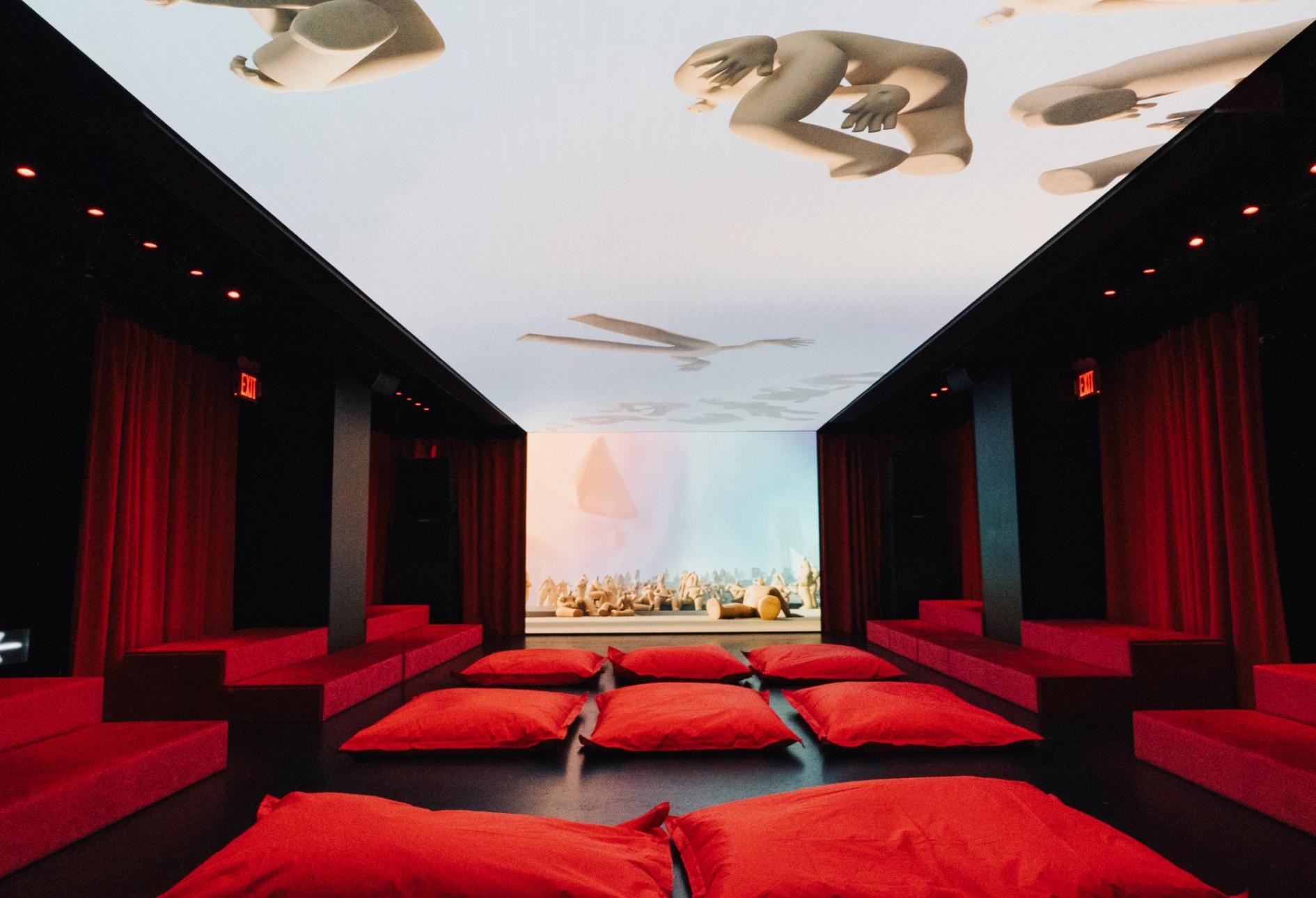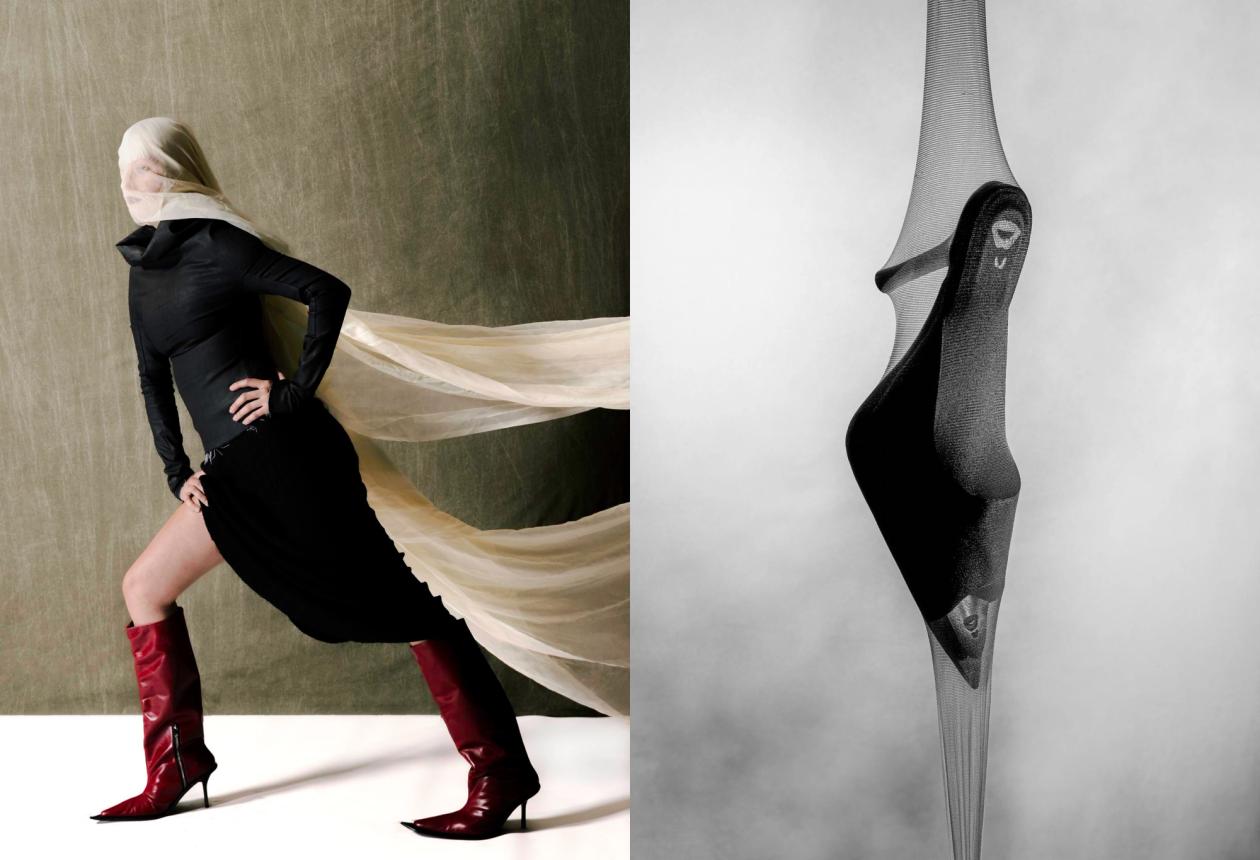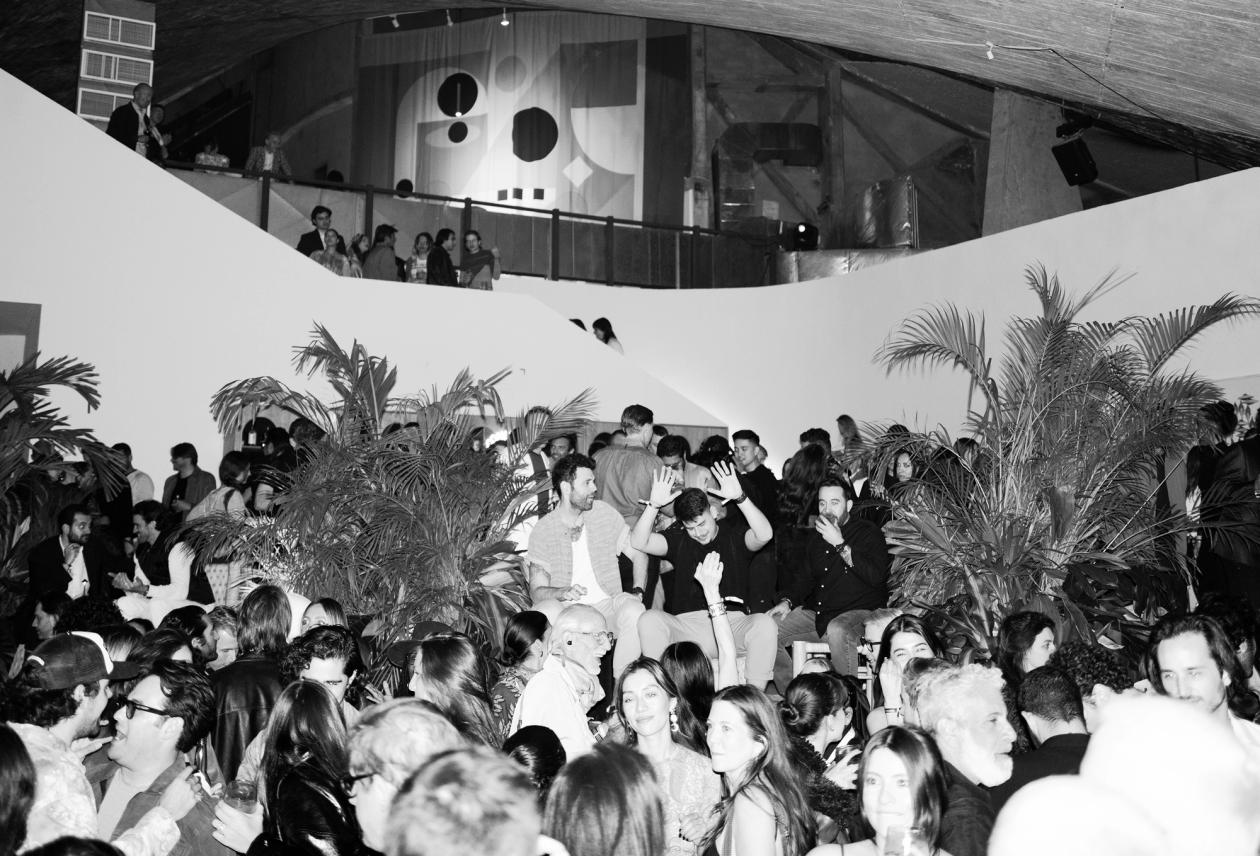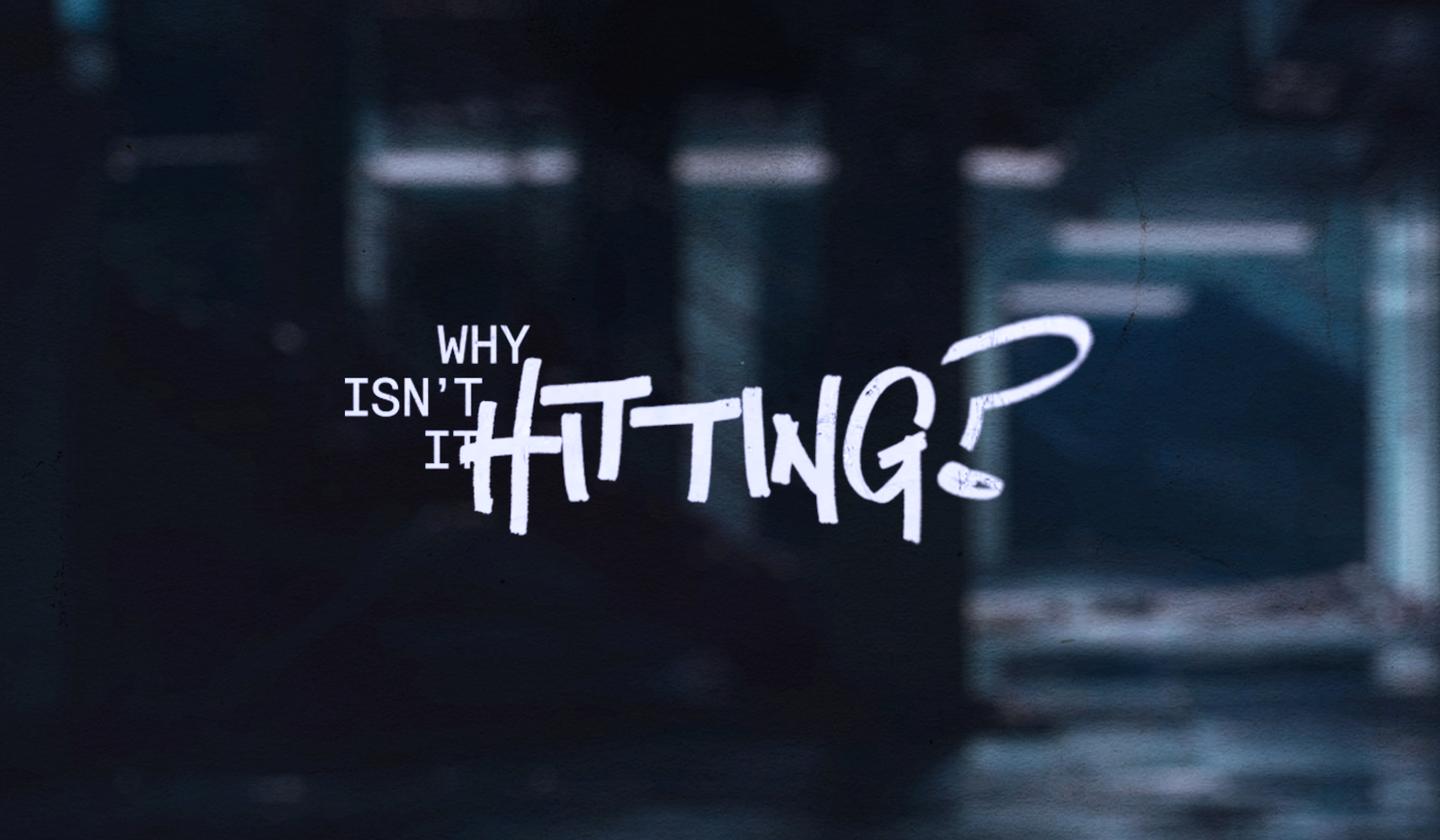
In a world where projected-taste reigns king, what are the effects of a life spent waist deep in the stream? A reflection from/for Gen-Z on exercising our sacred freedom (to choose between consumer goods) to obtain a better positioning toward art.
Matte OpEd
Fashion
Culture
Date
7/8/2024
Text
Andy Burroughs / Visuals by Ross Arcuri
I think I’ve bottomed out. The 25 year old, whose taste has been tuned by Big Algo over 10+ years, begins to feel lost in bookstores, playlists, IMDB, HBO, etc. What do I like? Also, what do I actually like?
And to you, all my fellow Gen Z’s out there, getting through the day–god bless you— but when was the last time you had an interaction with art that wasn’t in some way impacted by the Algorithmic Powers that Be?
It all began around sophomore year, when I realized that I needed my Liked Songs every time I was mixing vibes into a queue at the function.
I know people who need to consult their letterboxed accounts to tell me what their favorite movie of the year was. Copy and paste Goodreads example. Or consider a friend who can’t remember the titles of books because they were pumping through 10 a week on their kindle. Or what about the Watch Later list you keep adding to, but never seem to pull from? Are we going to live out the rest of our lives having excited conversations about art that are impossible without the search bar and the notes app?
In a world where the question is always what pieces are you consuming, the question ought to become how can we encounter pieces in a medium that is congruent with the work.
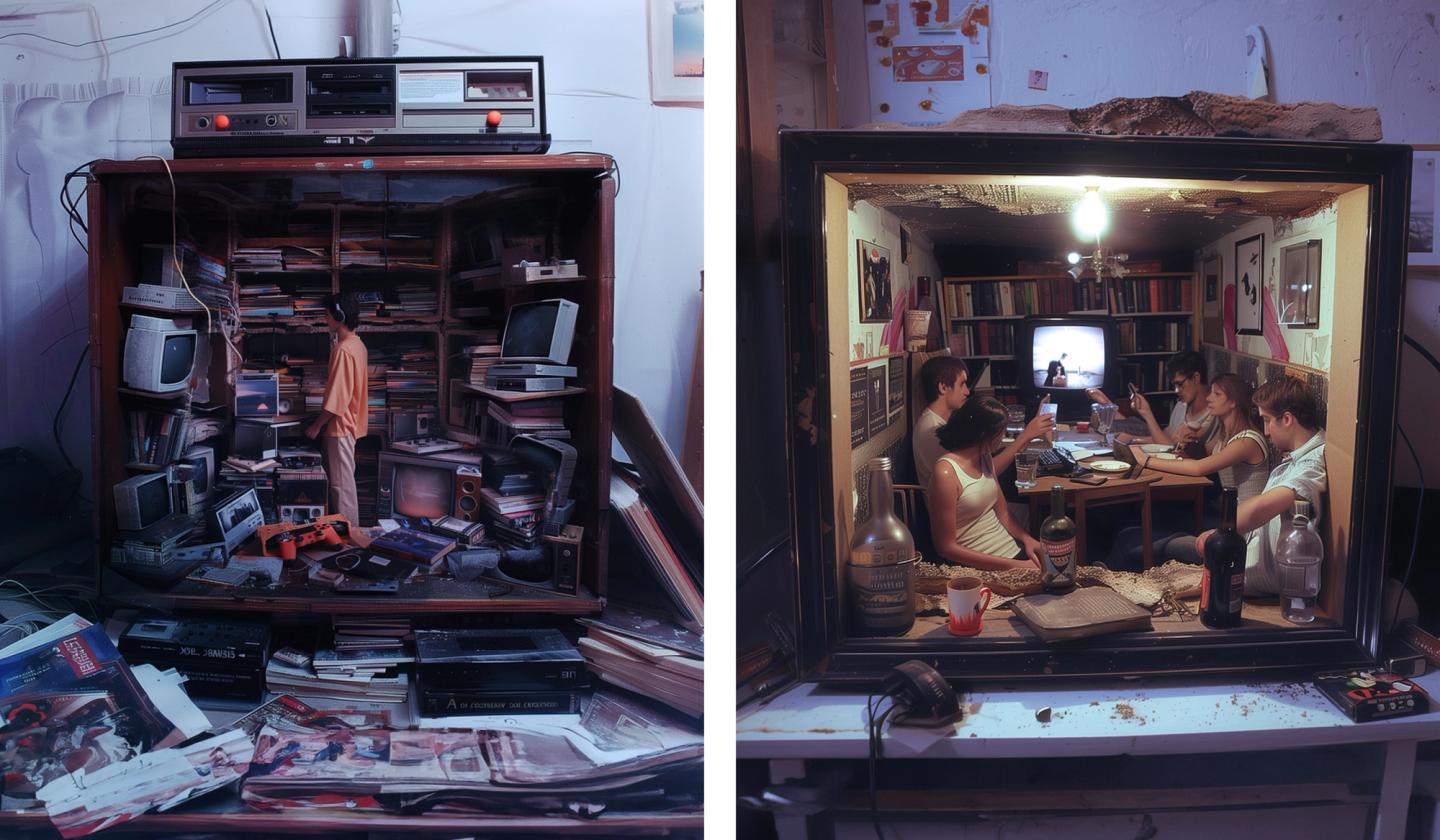
Consider The iPod Classic, in the Year of Our Lord 2024:
My first response was to leave the island altogether. Grab a Nokia, delete the Gram, cop record player, et al. It was Hegel who said, and my truly woat’ed philosophy-bro college roommate who paraphrased to me: It’s far easier to negate than it is to affirm. I think here we can adapt affirmation to affirmation-with-notes.
Instead, I decided to take one epochal step back, to a time just before The Stream, not to a time before digital altogether: The IPod.
The vinyl thing is cool, but it takes away more variables than I wanted, which was something that I could use in all the same environments as a phone, without the internet. Could it be a vibe?
Listening to music in bed at night, in the dark, alone, is magnificent. You would be amazed at the places your brain will go without its antenna. Going for walks sans phone avec tunes? unfuckingreal. Being three to four beers deep and hitting the subway and having the exact song for the moment is also some transcendent, main-character shit. And the big one: The feeling of privacy, that no person or computer knew I was listening to Green Day at 7:30am. Who am I kidding? No one cares. Also I wake up at 9.
Courtesy of the iPod, I re-rediscovered the value inherent in adding steps. The telos of the technocracy is a step-free life. Most technological advancement is pointed at increasing ease of access and decreasing steps between A and B. Steps give texture to an experience with art. You gotta risk your time for a genuine moment with a piece.
Imagine a roaring river. It’s the fastest one in town, courtesy of the latest pipeline. It’s hard to hear, say, Mixing Colours, amidst the rush of Tucker Carlson snippets and vacation pics of your friend from college who’s more successful than you and reactions to hydraulic press ASMR reels: it is much easier to have a genuine experience of art when taken in outside of the context of the internet. You appreciate a song more when you don’t have access to every thing ever made.
The acoustics in a room with four walls are much better than they are in a vacuum.
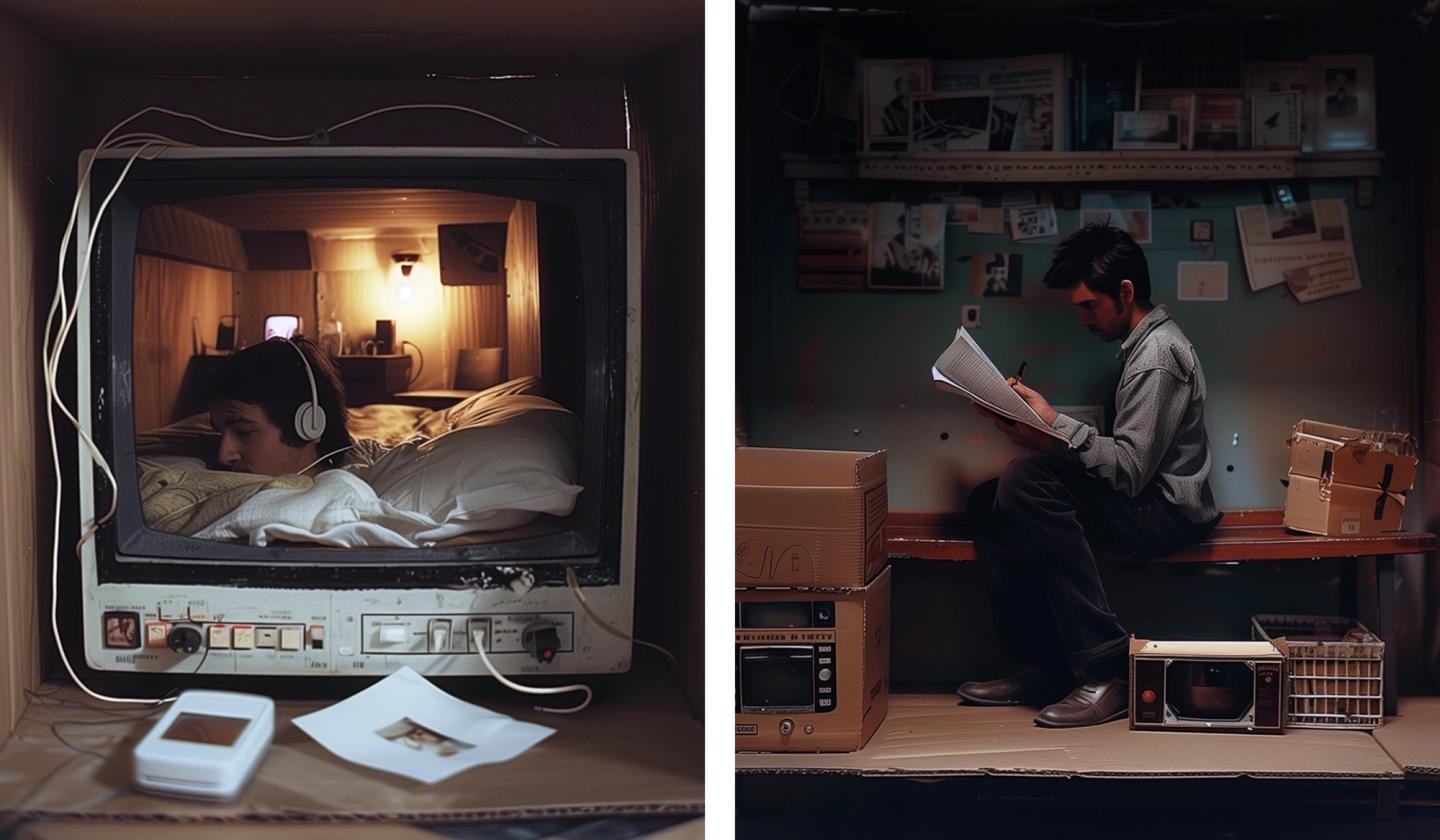
While I owe much of my ‘taste’ to Song Radios on Spotify, I would argue that it’s good for your taste in the long term to listen to music in a confined space (a space without internet), because it has time to expand naturally. You only really get tired of an album you like once you know it; listening to music in a confined space makes you painfully aware of the things you hate about a song or album; this forces you to encounter and sit with the things you don’t like, which challenges your tastes to grow. The first time I heard Yeezus I was like man this is really just horrific stuff. Good art isn’t easy or immediate.
A confined space is also a private space, where you can hate and love stuff on your own terms, free from the dual pressures of sharing and being seen while listening. Separating exploration from consumption means that you venture into new genres with a more robust knowledge base—and a much better idea of what you find compelling in music.
This is a transmission for all the other GenZ babies out there who had spotify too young: While infinite access is probably good for your taste short term and performatively, it’s likely not in the long term.
What comes next? I think the trick is to carve out a niche, to remain inquisitive and employ the spirit of experimentation. I don’t listen to the iPod all the time, I’m an adult. There are realities to be abided by. But when I do pull it out, it hits, and teaches me the same lesson every time: to play with the dials.
The Aglo isn’t the devil, man. We like to think we have such original and capricious natures, but if we did the algo wouldn’t be able to entertain us as totally as it does.
Just be thoughtful about how you use stuff, similar to a chainsaw, or a toothbrush.
Stay plugged in, or don’t. I’m not your dad.
Recent Articles
